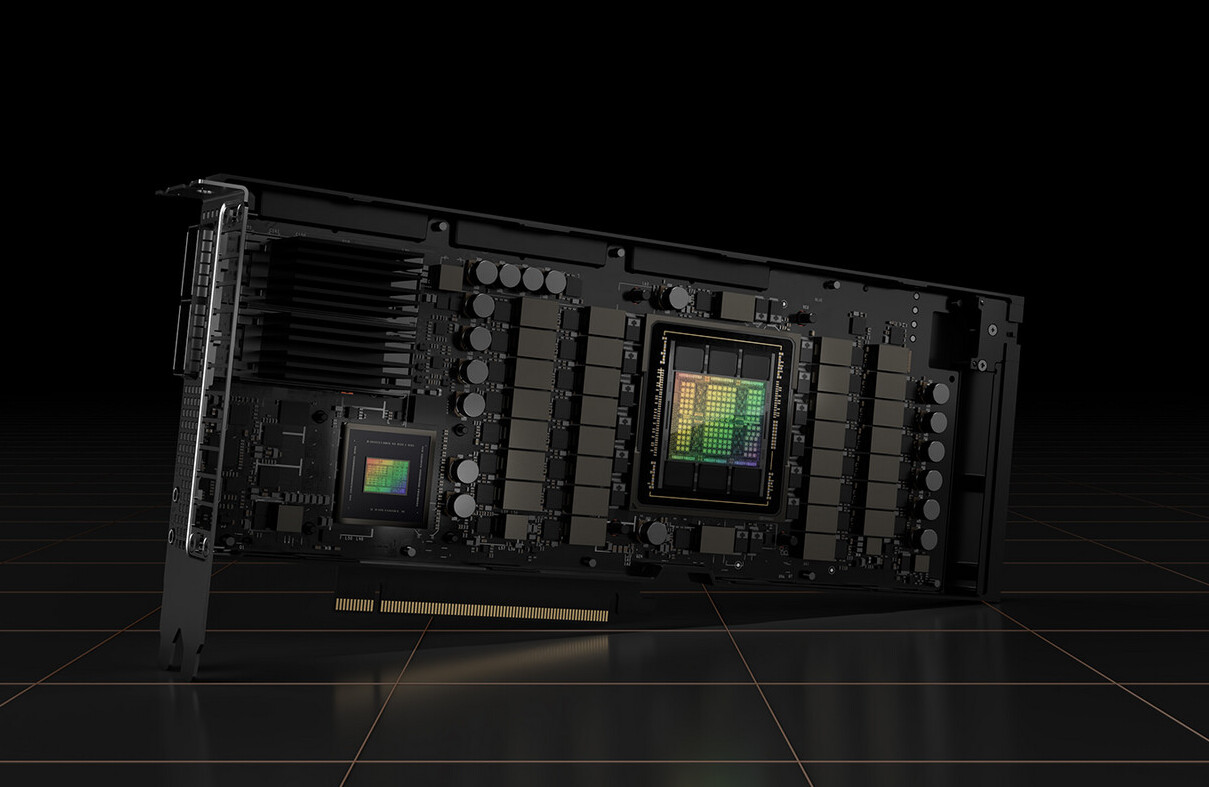Nvidia RTX 5090 launch might hinge on AMD's RDNA 4 success
AMD appears to be in the driver's seat for Nvidia's next-gen GPU

Sign up for breaking news, reviews, opinion, top tech deals, and more.
You are now subscribed
Your newsletter sign-up was successful
Gamers and creators waiting to see Nvidia's next-gen RTX 5090 in 2024 should keep a close eye on what AMD does next year, since Nvidia may be timing the RTX 5090 launch based on what AMD does with its own next-gen GPUs.
In a recent video, tech channel Moore's Law is Dead delved into the potential release date of the Nvidia RTX 5090, and the launch of the company's next-gen cards in 2024 largely hinges on the competitiveness of AMD's forthcoming RDNA 4 GPUs according to an Nvidia source.
The source indicates that Nvidia's new consumer architecture, based on the forthcoming Nvidia Blackwell GPU architecture, is being prepped for a possible release in the fourth quarter of 2024 depending on how well sales of its current RTX 40-series hold up in 2024 (especially with the release of the new RTX Super SKUs expected in January 2024) and whether AMD's next-gen cards, expected to focus on the mid-range market, impact Nvidia's year-end sales.
Despite AMD's RDNA 4 GPUs targeting the mid-range segment, a successful launch could challenge Nvidia's dominance in the high-end market as well, which might force Nvidia to introduce a new flagship graphics card to draw attention back to the GeForce line. At least that's the thinking.
Regardless of what happens in 2024, PC Gamer notes that Nvidia plans to heavily promote the RTX 5000 series at the Consumer Electronics Show (CES) in 2025, indicating a launch of next-gen GPUs by early 2025.
This timeline is earlier than initial reports that suggested Nvidia's next-gen cards might not arrive until later in 2025, but even the accelerated timeline still puts the new GPUs a year away at the earliest.
How hard is Nvidia going to lean into the graphics card market in 2024?
The real question here though is whether any of this will even matter by the end of 2024.
Sign up for breaking news, reviews, opinion, top tech deals, and more.
Nvidia became a trillion dollar company almost overnight thanks to its AI chip prowess, and even though AMD and Intel are positioning themselves to rival Team Green in this space, Nvidia's first-mover advantage here is pretty much a goose laying a ton of golden eggs.
Nvidia doesn't have its own fabs, unlike Intel, so the amount of silicon they can leverage is always going to be limited, and as I've been saying for many months now, Nvidia isn't long for the consumer graphics card market. The profits to be made in AI are just too astronomical to ignore and they are substantially higher than whatever margins Nvidia can get off selling graphics cards to gamers.
It's no surprise then when, according to a profile in The New Yorker, Nvidia CEO Jensen Huang himself emailed the company a few months ago saying that "We're no longer a graphics company."
With all that in mind, will there even be an RTX 5090 in 2025? How much money will Nvidia make on an RTX 5090 and what are the very real opportunity cost given up when the silicon in the RTX 5090 could instead be put into new AI chips that Nvidia can sell to Google and Open AI for pretty much whatever it wants?
All that remains to be seen, but it's pretty clear that Nvidia has some pretty consequential decisions to make, regardless of what AMD tries to do.
You might also like
- Nvidia could be up to something odd with next-gen Blackwell GPUs – and AMD might take advantage
- Nvidia teases its most powerful GPU ever — no, it's not the newly-announced H200, but the 2024-bound B100 Blackwell AI powerhouse
- Nvidia 5000 series GPUs might use multi-chiplet design—and it could help get Nvidia back on the performance track
- Nvidia’s plans for AI GPUs could upend PC gaming forever

John (He/Him) is the Components Editor here at TechRadar and he is also a programmer, gamer, activist, and Brooklyn College alum currently living in Brooklyn, NY.
Named by the CTA as a CES 2020 Media Trailblazer for his science and technology reporting, John specializes in all areas of computer science, including industry news, hardware reviews, PC gaming, as well as general science writing and the social impact of the tech industry.
You can find him online on Bluesky @johnloeffler.bsky.social